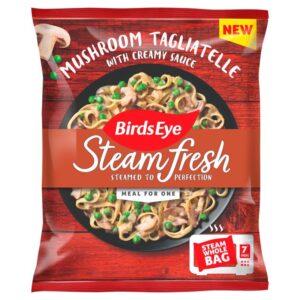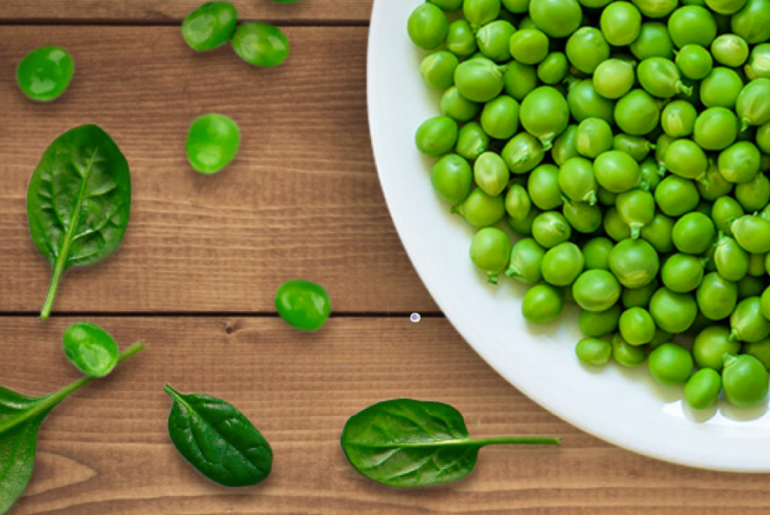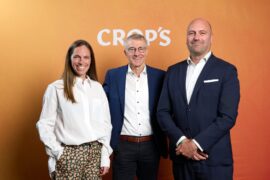Consumers in the United Kingdom have long appreciated the health and money saving benefits of eating frozen fruits and vegetables, with nearly nine out of 10 Brits buying frozen veggies regularly. According to data from Nielsen for the 52-week period ending August 10, 2024, and Kantar statistics covering the 52-week period through August 4 of this year, the total retail frozen vegetable category is currently worth £574 million.
Kantar reports further the value of frozen vegetables in the British market has risen by 14.4% since 2023 due to food price inflation. Despite this significant increase, consumption has remained steady, showing only a slight 0.1% rise in volume. However, according to Statista, the United Kingdom’s processed and frozen fruit market is poised to grow annually by 4.34% from 2024 to 2028. Furthermore, the volume of the processed and frozen fruit market is expected to reach 157.40 million kg by 2029.
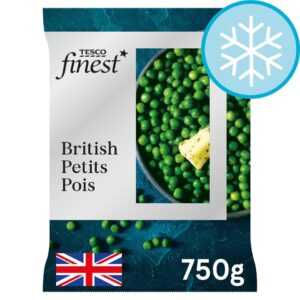
“This stability in demand suggests that UK consumers continue to appreciate frozen vegetables and fruits for their convenience, extended shelf life and alignment with sustainable living practices,” said Rupert Ashby, chief executive of the British Frozen Food Federation (BFFF). “Even with the higher prices, the benefits of reducing food waste and simplifying meal preparation keep these products popular among households in the United Kingdom.”
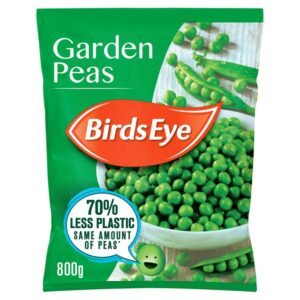 Top Pick
Top Pick
Frozen peas are the most popular frozen vegetable, now worth 30% of total frozen vegetable sales. According to OnePoll (July 24), Brits devour a staggering 9,000 of them on average each year (peas.org), which equates to an 80-gram portion every three days.
The popularity of peas is evident in the segment’s current value of £172.9 million over the last 52 weeks. In fact, the amount of money spent on peas in the UK is double the value spend of frozen broccoli, carrots and sweetcorn combined, with frozen peas growth at +7.1% year-on-year, reported Nielsen.
Nomad Foods’ Birds Eye brand peas is growing in volume sales ahead of the total peas category (+4% YoY: Neilsen), and helping bring new shoppers into the category (+6.9% YoY: Kantar) vs. own label peas which are losing penetration (-3.2% YOY: Kantar).
“Shoppers are buying peas more frequently this year (+2% YoY), with young family shoppers buying more packs of peas YoY (+5%: Kantar) than previously,” said Sophie Simms, marketing manager for vegetables at Birds Eye UK & Ireland. “With the continued growth and popularity of frozen vegetables and frozen peas in particular, it is clear that there is a great sales opportunity for retailers within the frozen vegetable aisle.”
She continued: “Birds Eye is at the heart of this love affair. We pride ourselves on quality, and when it comes to peas we put our heart and soul into ensuring that every pea that reaches our consumers’ plates is as sweet and nutritious as it can be. Being the largest single producer of vining peas in the UK, we harvest over 40,000 tons a year from around 700 Yorkshire and Lincolnshire fields to feed the nation and beyond. Since Birds Eye’s first harvest in 1946, we have been picking our peas at peak ripeness and flash-freezing them in two and a half hours to lock in their sweetness, texture and nutrients as quickly as possible.”
Versatile Options
The popularity of frozen fruit and vegetables shows no sign of abating and, according to the BFFF, there are several products that stand out as clear favorites among UK consumers.
“Frozen peas, corn, broccoli, mixed vegetables and spinach are particularly popular due to their versatility and ease of use,” said Ashby. “In the fruit category, frozen berries, mango, pineapple, cherries and peaches are highly sought after for their convenience, long shelf life and nutritional value.”
According to the Confederation of British Industry (CBI), frozen berries have a lot of appeal among European consumers thanks to their versatility, nutritional benefits and healthy profile. The use of frozen berries in breakfasts, smoothies, desserts and baking has driven sales. The Ministry of Foreign Affairs expects that the European market for frozen berries will experience a growth rate of around 1-2% annually. In terms of volume Germany, France, the United Kingdom, the Netherlands, Belgium and Italy are the leading importing countries.
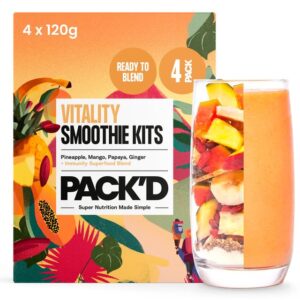 Innovations
Innovations
Frozen products are tapping into the trend for affordable and healthy options, which is why there has been a lot of focus on this area to encourage sales of fruit and vegetables.
“Recent innovations in the sector include Birds Eye’s Steamfresh range, which provides pre-seasoned, ready-to-cook mixed vegetables,” said Ashby. “Another standout is The Berry Company’s new frozen fruit smoothies, enriched with added vitamins. Additionally, Tesco’s Finest organic vegetables and Sainsbury’s single-ingredient frozen produce, such as butternut squash chunks, emphasize the industry’s shift towards convenience and health.”
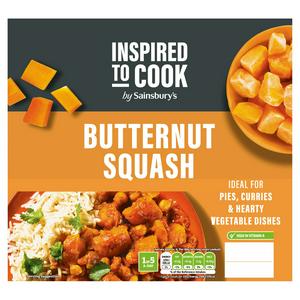
Consumers in Britain are leading increasingly busy lives, with many of them looking for nutritious meal options that are also easy and quick to prepare. In recent research commissioned by Birds Eye, taste and convenience were the top two most important factors when choosing lunch, followed by nutrition. In addition, 40% of respondents stated that they wanted to “improve” their lunch breaks.
“With this in mind, Birds Eye is catering to the nation’s tastes and providing an opportunity for retailers to capitalize on this demand through the new Steamfresh Meals range,” said Simms. “When looking for quick meal solutions, options are often limited or mean consumers have to compromise healthiness for convenience. Our Steamfresh offerings provide nutritious meals that taste delicious while also being quick and convenient. The range includes Mediterranean Vegetables & Pasta in Tomato Sauce, Mushroom Tagliatelle in a Creamy Sauce, and Spinach & Ricotta Tortelloni with Vegetables & Pesto.”
– Reported by Sarah Welsh
